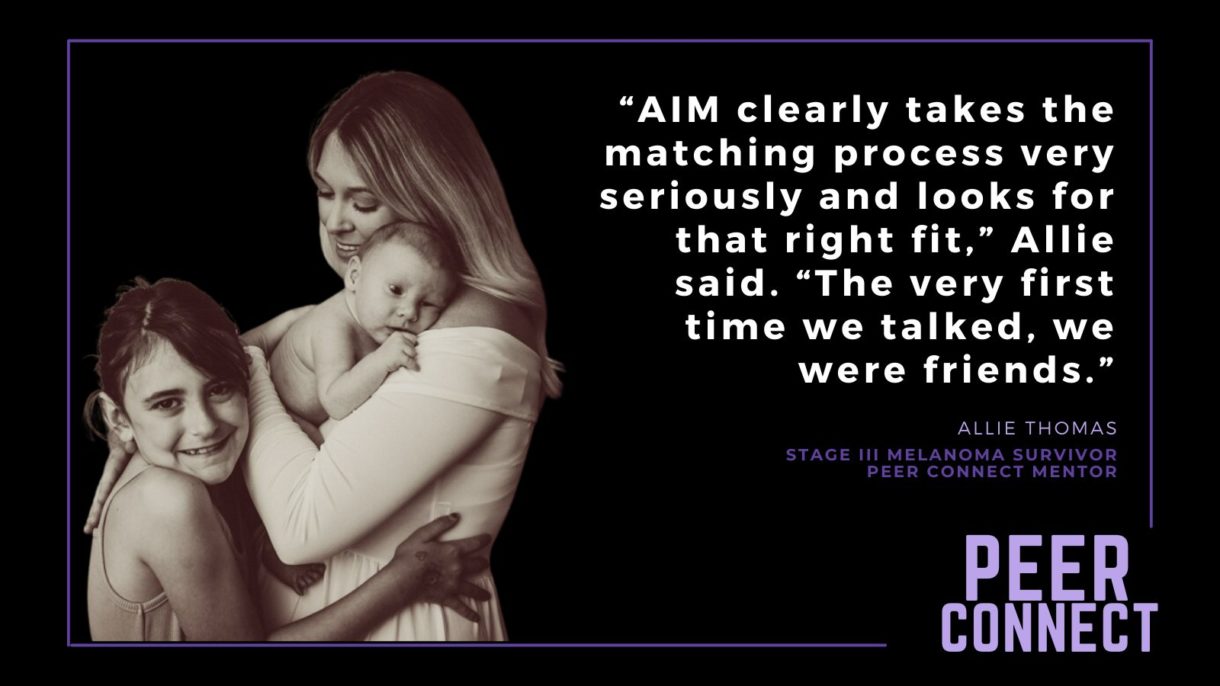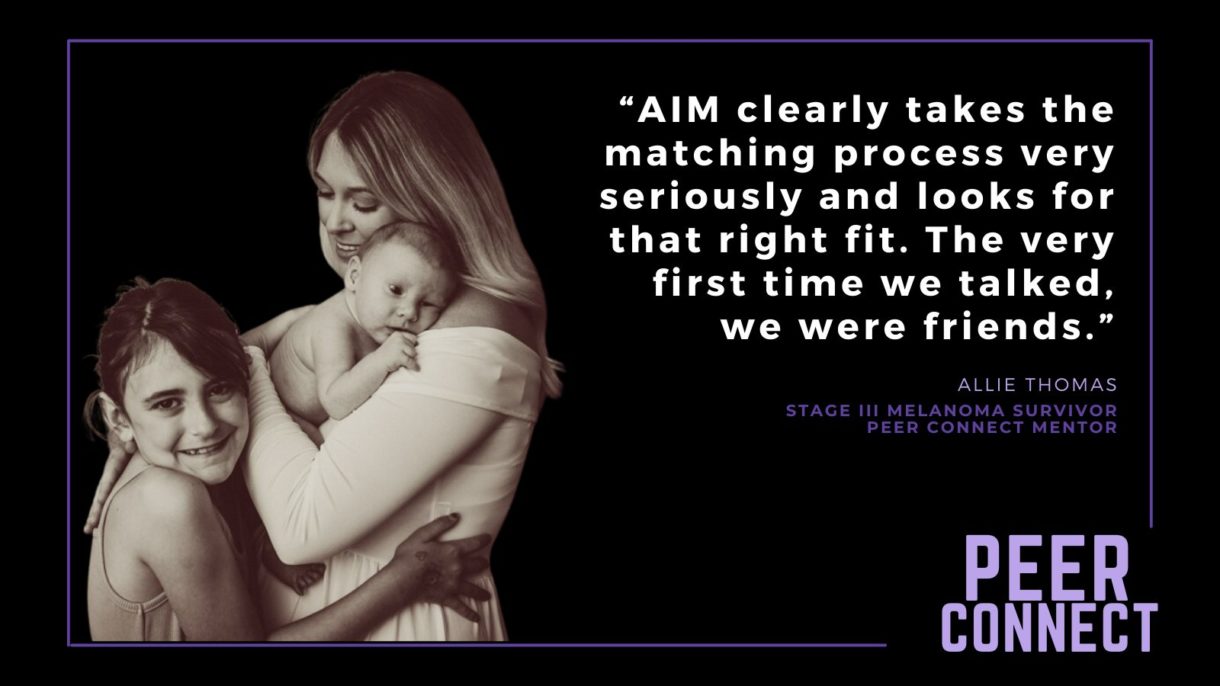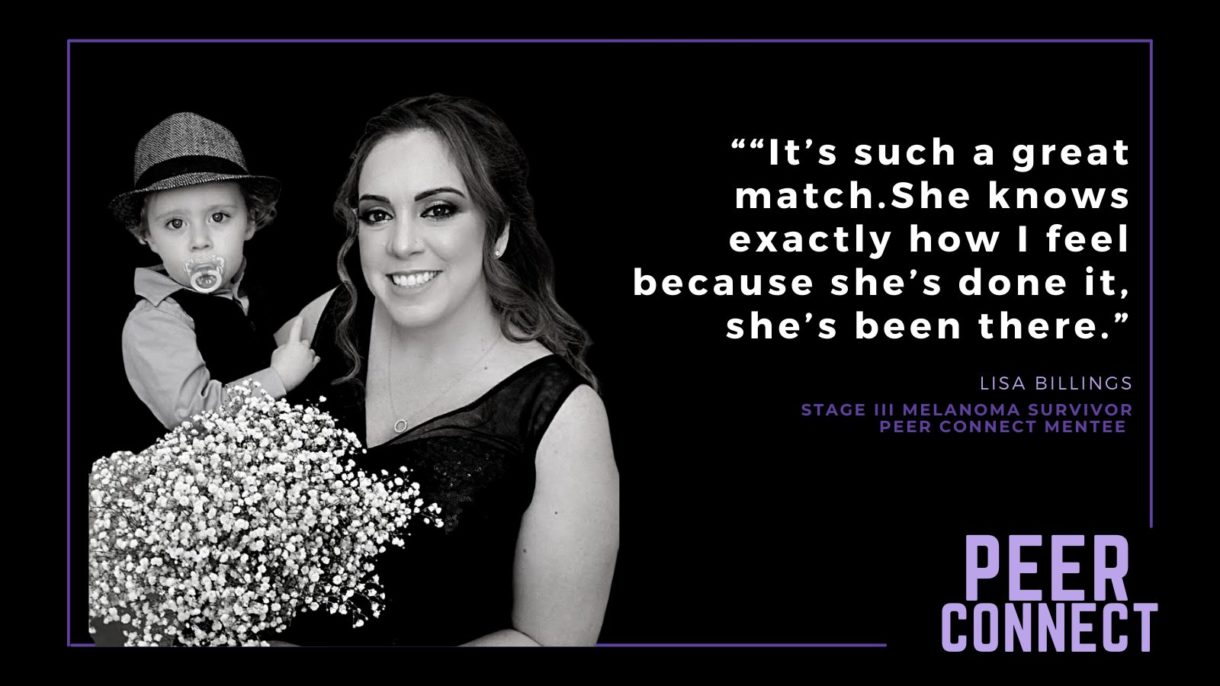Featured Survivor Story:
The Importance of Peer Support when Battling Melanoma

By Mara Klecker
In recent months, the texts back and forth between Allie Thomas and Lisa Billings have revolved around family. Lisa gives updates on her pregnancy—she’s due in February—and they share thoughts and worries about navigating motherhood after a melanoma diagnosis.
“It’s so nice to be able to talk to someone who understands,” Allie said.
 Allie and Lisa found each other through the Peer Connect program, a free service provided by AIM at Melanoma Foundation. The program matches melanoma survivors and caregivers with others who are in need of support from someone who’s been in a similar situation. The connections are available for people at any stage of the melanoma experience.
Allie and Lisa found each other through the Peer Connect program, a free service provided by AIM at Melanoma Foundation. The program matches melanoma survivors and caregivers with others who are in need of support from someone who’s been in a similar situation. The connections are available for people at any stage of the melanoma experience.
Lisa was surprised to be matched with someone with a story much like her own—they were both young mothers when they were diagnosed with Stage III melanoma—though Allie’s experiences were a few years before Lisa’s.
“It’s such a great match,” Lisa said. “She knows exactly how I feel because she’s done it, she’s been there.”
Allie was first diagnosed in the fall of 2016. She had a mole on her cheek that she had removed, though it hadn’t even crossed her mind that it could be cancerous.
When she went in to get her stitches out, she brought her 3-year-old daughter, thinking the appointment would be quick and routine.
Instead, her doctor told her that he’d stayed up all night dreading their conversation. That’s when she found out the biopsy results showed melanoma.

“That shocked me—I was 22 and realized I may not live to see 25,” she said.
Over the next three months, she had about 20 lymph nodes removed on the left side of her neck (all of which came back negative for melanoma) and underwent a few rounds of immunotherapy as part of a clinical trial. She’s had No Evidence of Disease ever since.
“I was so fortunate,” Allie said.
Allie signed up for the Peer Connect program as a way to share her experience and support someone else with melanoma.
“AIM clearly takes the matching process very seriously and looks for that right fit,” Allie said. “The very first time we talked, we were friends.”
Lisa agreed, adding that the type of friendship she has with Allie is unlike any others in her circle of supportive family and friends.
Lisa was diagnosed with melanoma at the end of 2019. Like Allie, she had a wide local excision and surgery to remove lymph nodes.
Lisa, who lives in Canada, was looking at AIM’s website and resources when she stumbled across information about the Peer Connect program. Lisa’s location in the Northwest Territories means she has to travel 12 hours to see her dermatologist and there’s no local support group for her to meet other melanoma survivors.
While her own family and friends were incredibly supportive during her melanoma journey, she said she wanted someone with who she could talk openly about the fears and concerns she had, as well as the scans and treatment options she faced.
The first time they connected, the two women talked about how the diagnosis changed their perspective on life—Lisa said she started thinking a lot more about how she wanted to invest her time.
Now they talk about pregnancy and melanoma, as Allie has a young infant at home and Lisa is expecting. Allie’s story of having a healthy pregnancy after a melanoma diagnosis helped ease some of Lisa’s fears.
“It’s hard to talk about those things with family members who are just as emotional as you are,” she said. “Even though we don’t talk every day, just having Allie there as that person who gets it has really, really helped.”






